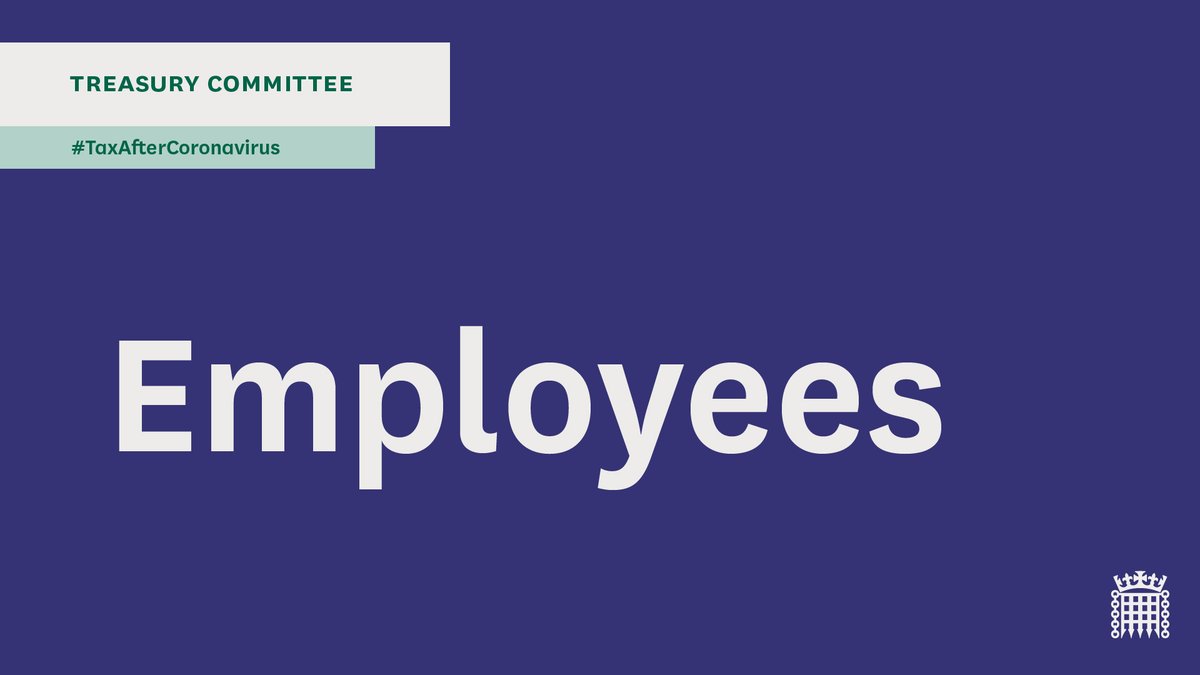
⏳One hour to go until our evidence session on business taxes as part of our #TaxAfterCoronavirus inquiry.
We'll hear from:
✅ Tom Clougherty @CPSThinkTank
✅ @alexcobham
✅ Annie Gascoyne @CBItweets
✅ @ChrisSangerEY
📺Watch it live at 14:30 here👇
parliamentlive.tv/Event/Index/66…
We'll hear from:
✅ Tom Clougherty @CPSThinkTank
✅ @alexcobham
✅ Annie Gascoyne @CBItweets
✅ @ChrisSangerEY
📺Watch it live at 14:30 here👇
parliamentlive.tv/Event/Index/66…

We're underway with our evidence session on business taxes for our inquiry into #TaxAfterCoronavirus.
📺Watch it live here👇
parliamentlive.tv/Event/Index/66…



📺Watch it live here👇
parliamentlive.tv/Event/Index/66…




How important is corporation tax to businesses when considering where to invest?
@ChrisSangerEY tells us that it's "fifth or sixth on the list".
He added that low rates make the UK attractive to invest in and Govt would be wrong to raise rates if it wants inward investment.
@ChrisSangerEY tells us that it's "fifth or sixth on the list".
He added that low rates make the UK attractive to invest in and Govt would be wrong to raise rates if it wants inward investment.

.@alexcobham tells us that the UK rate of corporation tax, in an international context, is "inappropriately low".
He added that if the UK followed the Biden/Harris proposal, raising the rate to 28% "would bring in, depending on the behavioural effects, perhaps £20-25 billion".
He added that if the UK followed the Biden/Harris proposal, raising the rate to 28% "would bring in, depending on the behavioural effects, perhaps £20-25 billion".

Is there a case for a windfall/excess profits tax on companies?
@alexcobham says "yes, absolutely", "it should be targeted by size".
Tom Clougherty from @cpsuk disagrees, telling us "it would be unwholly unjust to punish those have helped make the last year barely tolerable."

@alexcobham says "yes, absolutely", "it should be targeted by size".
Tom Clougherty from @cpsuk disagrees, telling us "it would be unwholly unjust to punish those have helped make the last year barely tolerable."


Annie Gascoyne from @CBItweets says the UK has one of the highest rates of property taxation in the G7 - around 4% of GDP, compared to 1% in Germany.
If we're talking about lowering the burden on businesses to stimulate investment, "business rates has to be top of the list".
If we're talking about lowering the burden on businesses to stimulate investment, "business rates has to be top of the list".

How would you assess the success of the Government's overall approach to tax avoidance?
@ChrisSangerEY tells us that "we've seen significant reductions in corporate tax avoidance", adding that the system is becoming "far more robust".
@ChrisSangerEY tells us that "we've seen significant reductions in corporate tax avoidance", adding that the system is becoming "far more robust".

That's all for today. Many thanks to all of our witnesses for taking part in our evidence session on business taxes for our inquiry into #TaxAfterCoronavirus.
📺You can watch it on demand here👇
parliamentlive.tv/Event/Index/66…
📺You can watch it on demand here👇
parliamentlive.tv/Event/Index/66…
• • •
Missing some Tweet in this thread? You can try to
force a refresh


































